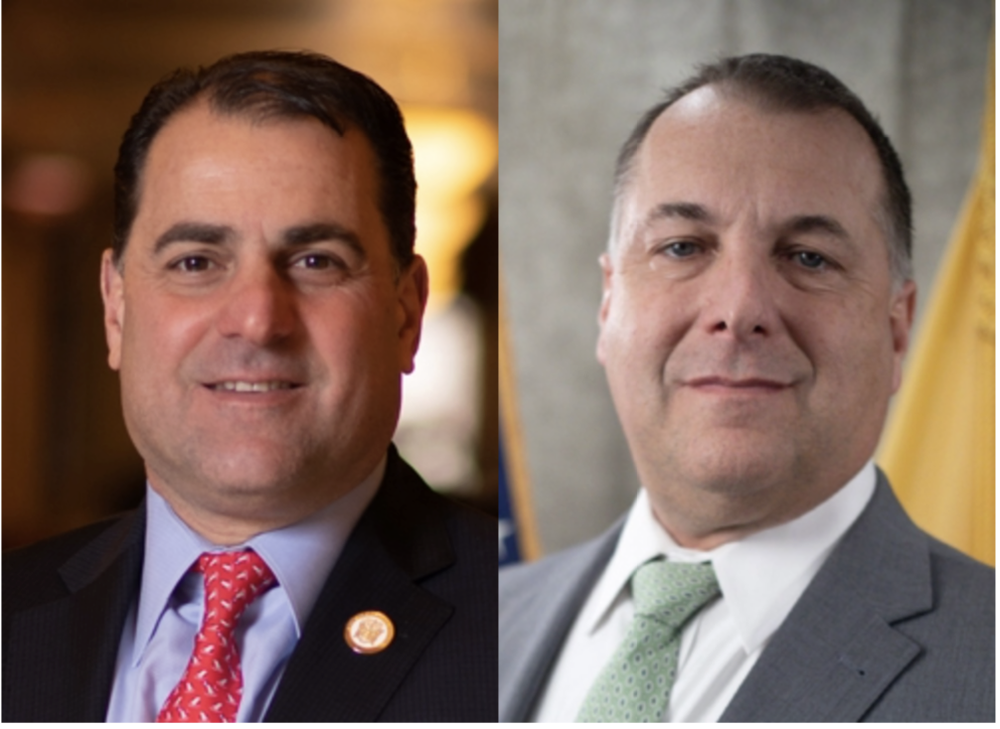NJ lawmakers could vote Monday on unpopular measure to limit public records access
May 11, 2024, 1:31 p.m.
Lawmakers appear ready to approve the bill, despite a poll showing 81 percent of the public isagainst it.

Lawmakers in New Jersey appear to be moving ahead with a deeply unpopular bill that would revise the state's Open Public Records Act, or OPRA, making it more difficult for the public and the press to access government records.
The latest attempt to diminish OPRA is opposed by 81 percent of the public, according to a recent poll by Fairleigh Dickinson University, and it has been delayed multiple times amid withering criticism from transparency groups.
It could be voted on by the full New Jersey State Senate and Assembly as early as Monday.
CJ Griffin, a media and public interest lawyer who focuses on public records — and a fierce opponent of the bill — joined WNYC to discuss the measure. The interview has been lightly edited for clarity.
Sean Carlson: Can you just briefly explain what OPRA is and what would change if this bill is passed?
CJ Griffin: Sure. OPRA is the statute that provides the public the ability to access public records, which are records that public agencies, local governments, schools, state agencies, create every day as they're doing work and those belong to the public.
Right now there's a full frontal assault on OPRA. All of these towns and local agencies have complained about having to comply with the law, or getting sued for not complying with the law. And so they've convinced the Legislature to gut the statute.
So the bill sponsors say that the bill is necessary to do things like protect against privacy invasions or stop abuses by commercial firms and unnecessary requests from residents who take up clerks' time. Why don't you agree with that?
Well, I think that they have been arguing that it's about dealing with commercial requests, but their recent amendments show that that's just not true.
The original version had a ban on data brokers, and now that is removed from the bill. The most recent version of the bill also gives priority to commercial requesters. They can pay a small fee to the agency and actually get a guaranteed response within seven days. But if you and the media or our general member of the public file an OPRA request, it's almost impossible to get a response in seven days.
You get a response far down the line, um, you know, 14 days, 21 days, two months, three months. I've seen people have requests go on for years, actually. So this actually gives a benefit to commercial requesters. So a version of this bill was introduced months ago, and like right away saw overwhelming objections from journalists and good government advocates, but then even more lawmakers have joined as co-sponsors since then.
Why do you think legislators are pushing this hard for this right now?
Well, all of these towns and counties and other local agencies are really complaining and they have big lobbying groups, the League of Municipalities, the Association of Counties, all of which, by the way, are funded with taxpayer money, and they are telling lawmakers that they need this relief from commercial requests and those sort of things and complaining.
I also think that there are some conflicts of interest because many lawmakers either work for local governments — some are mayors, some are parts of county governments, some of them have legal clients who are these county local agencies. And so I think they have the lawmakers’ ears more than the public. But a recent poll shows 81 percent of the public doesn't want this, and there is outrage about it. There were hours of testimony Thursday and hours of testimony Friday against the bill.
There are changes in the latest bill though, right? Can you tell us why you're still not satisfied?
Well, there, they did some, uh, changing to wording that really just amounts to synonyms that do the same thing, but the major cut, um, is that they got the fee shifting provision.
What that does is allow the average person as well as the media to find a public interest lawyer who will represent them without charging them anything. And then when the agency loses the case, which they usually do, then they have to pay the requester's fees — that is gone now. So the average person in the media won't be able to sue to enforce their right to access records.
The only people that will, will be people with money or these commercial entities that they're complaining about. And then there are so many other provisions that gut access to emails. We would no longer be able to get the “Time for some traffic problems in Fort Lee” email because you couldn't sufficiently describe it. [Editor’s note: The email in question refers to a message sent by Bridget Anne Kelly to David Wildstein during the Bridgegate scandal under Chris Christie.] Metadata, all sorts of other things are now exempt under the bill. And none of that really changed from the prior version.
CJ, how can people have their voices heard on this issue?
Well, right now it's already passed through the committees. There still needs to be an Assembly and Senate session. So people should be calling, leaving messages for their lawmakers and also contacting Governor Murphy.
We need him not to stain his legacy with this secrecy bill, but instead to veto it. So make calls. That's the most important thing.
David Giambusso contributed reporting.
NJ lawmakers want to weaken public's right to records. Gov. Murphy says he's open to the bill. NJ law enforcement is suing to keep records on councilmember’s shooting death from public